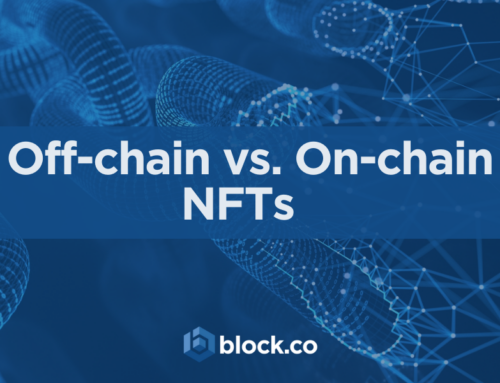Regulation on Fake Credentials and the Growing Role of the Blockchain

Fake credential production can be traced back to the Middle Ages in France and Italy, while nowadays it is punishable by misrepresentation and anti-fraudulent laws pretty much everywhere globally, with prison sentences of up to ten years.
Although the type of crime and punishment differs from country to country, our research found that often there is not a specific regulation related to the submission of fake credentials and in that instance, authorities rely on existing rules linked to fraud, forgery, and misrepresentation. In the case of institutions faking academic qualifications, a concept is known as “diploma mill” or “degree mill”, a fraudulent organization that appears as an educational institution and grants worthless degrees for a fee.
One of the most shocking examples of a reputable academic institution being involved in such illicit activity is the University of Wales, a 120-year old institution and the second largest in the country. Due to a series of fraudulent credential episodes linked to overseas partner colleges, that irreversibly ruined the reputation of the university, it had to cease to exist in 2011. Surely, credential fraud is becoming more common and sophisticated, especially after the rise of the internet. But so are laws and regulations that are trying to crack down on such offenses.
One striking example in the bitcoin and blockchain sphere is the case of Craig Stephen Wright, who has repeatedly presented forged documents and credentials in order to appear as Satoshi Nakamoto to the world. His case is still ongoing and it is still unclear if, and to what extent, he will be convicted but it gives us an idea of the impact credential frauds can have on any given field.
In the USA a series of separate investigations conducted by the FBI and other United States agencies in the ‘80s led to the infamous Operation Dipscam (Operation Diploma Scam) which resulted in more than 20 convictions and the closing of 39 diploma mills. Fraudulent activity in the US dropped massively in the aftermath of the investigation. However, lack of further action by the government, dissimilar state laws, and the rise of the internet has unfortunately invalidated some of the outcomes obtained during the operations.
As laws on the submission of fake credentials differ from state to state in the US, let’s look at some examples.
In North Dakota, since 2003 it is illegal to issue or produce fraudulent academic credentials and punishable with up to five years in prison and/or a fine up to $25,000. Also, submitting fake credentials to obtain a job or admission to the education system could result in a one-year term of imprisonment and/or a $2,000 fine.
In Virginia since 2008 anyone who issues, manufactures, or knowingly uses fraudulent academic credentials can be found guilty of a crime and punishable by a maximum one-year jail sentence and fines up to $2,500. In New Jersey, the use of a fraudulent degree is subject to a civil penalty of $1,000 for each offense.
In other countries, the state of affairs is quite diversified too, from lack of specific regulation to tough laws or jurisdictions that focus on prevention activities.
Most recently, in South Africa, President Cyril Ramaphosa has passed a law to toughen up the submission of fake credentials. Anyone presenting fraudulent academic qualifications or misleading curriculums might face up to 5 years in jail and/or unspecified fines according to the National Qualifications Framework (NQF) Amendment Act 2019. Similarly, the regulation applies to educational institutions that award fraudulent qualifications.
In the rest of the African continent, laws and regulations on the matter are more uncertain and at times nonexistent. Higher education and corruption are strictly linked to a lack of access to universities. According to UNESCO, although enrollment in higher education has grown faster in Sub-Saharan Africa than in any other region of the world, still only around 7% of the population was enrolled in 2010. Subsequently, in order to gain admission to a degree program of choice, the bribing practice has increased in most universities in the region.
In Saudi Arabia, presenting fake credentials may result in a fine of up to €170,000 and imprisonment from one to seven years, and in the case of non-nationals deportation and a life ban from entering the Kingdom of Saudi Arabia may apply. In the UAE the convicted shall be sentenced to up to ten years of imprisonment. Also in Qatar authorities have started to take the issue very seriously. Dr. Khalid Al Jaber, former Editor-in-Chief of the national newspaper Peninsula, suggested that “fraudulent engineers, doctors, and accountants be publicly named and shamed.” One of the first tough sentences in the country, saw an Indian ex-pat facing up to three years in jail for faking a degree to get a promotion at work.
Alongside new regulations, everywhere there is an increasing debate on how to prevent forgery in education and other fields. In China, for instance, the CDGDC (China Academic Degrees and Graduate Education Development Center) has provided a free China degree verification service since July 2018. The service, other than free, is also extremely simple to use with a report that can be downloaded, printed, and cross-checked online and the electronic degree verification report issued in Chinese.
Soon there will be no need for third-party verification; wide adoption of the blockchain will result in accurate, non-forgeable, immutable, and time-stamped documents that will save time and money to governments and institutions alike.
The University of Nicosia and Block.co can help provide the necessary technical expertise to follow the whole process from creation to publication on the blockchain where the document will be safely stored for life and where it can be independently verified by any third party. They were the first ones to do it globally as early as 2014.
Block.co’s solution is the only truly decentralized solution to secure PDF documents from fraud without intermediaries. Our product’s decentralized nature enables validation, revocation, and expiration on-chain. We also issue documents on both Bitcoin and Litecoin making our solution blockchain agnostic. Furthermore, Block.co’s easy-to-use and secure API is integrated with the existing legacy system. Learn more about our product characteristics, qualities, and features here.
If your brand is ready to take the step into web 3.0 and NFT marketing, to optimize engagement with your audience in innovative ways, then click the button below to get your Free Trial, a limited number of Free NFTs, and a Free Consultation call from our team!
For more info, contact Block.co directly or email at enquiries@block.co.
Tel +357 70007828
Get the latest from Block.co, like and follow us on social media:







